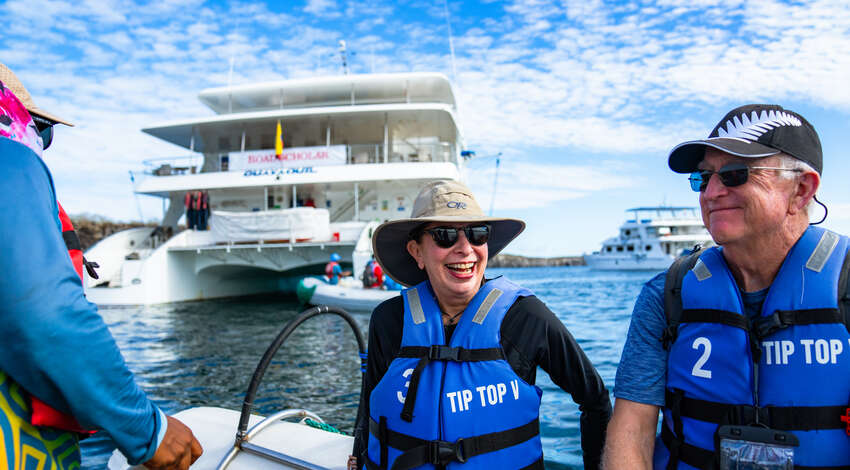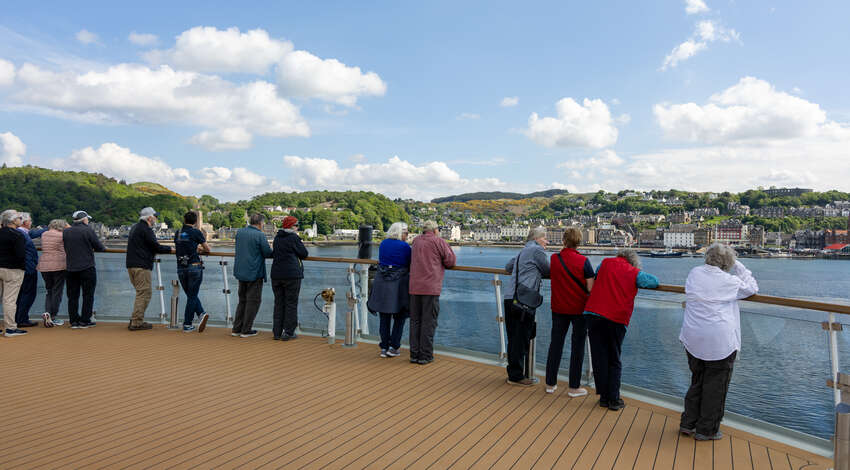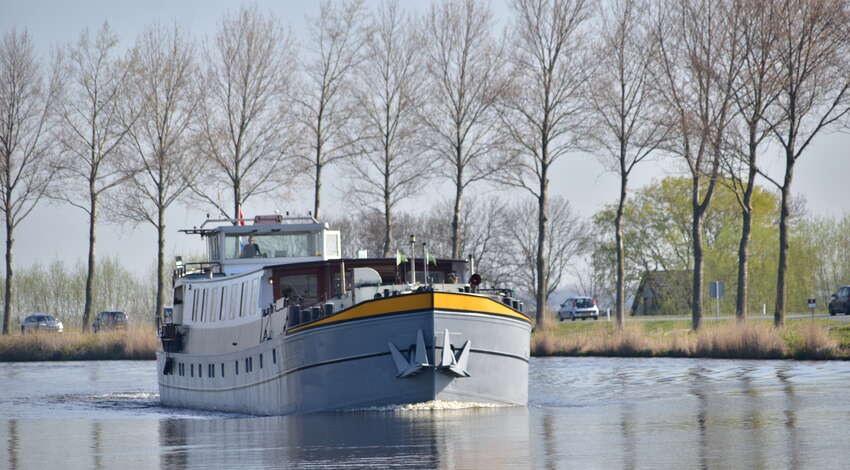Sustainable Seas: Road Scholar's Guide to Eco-Friendly Ship Travel
At Road Scholar, we're passionate about learning on the world's waterways. We also care deeply about our environmental impact, which is why we're committed to making our Adventures Afloat both enriching for you and kinder to our planet. Join us as we explore how maritime travel is becoming more sustainable, introduce you to our eco-conscious partners and share our vision for even greener voyages. We're excited to bring you along on this journey toward making Road Scholar learning adventures as sustainable as possible.

Traveling by ship offers convenient access to curated experiences showcasing a region's natural beauty. However, sea travel has faced criticism for its environmental impact and effects on local communities. Despite this, demand for innovative maritime exploration continues to grow. In 2023, the global economic impact of the ship travel industry exceeded $168 billion, supporting millions of jobs directly and indirectly.
The Cruise Line International Association (CLIA) has set an ambitious goal of net-zero emissions by 2050, meaning greenhouse gas emissions will be balanced by removal from the atmosphere. Achieving this, however, requires significant technological advancements. Likewise, the maritime travel industry is working to address Sustainable Development Goals (SDGs), a set of 17 global goals established by the United Nations in 2015 with the goal of a better and more sustainable future for all by 2030, including gender equality, decent work, clean energy and clean water.
Environmental Progress in Maritime Travel
- By 2028, 72% of the CLIA fleet will connect to shoreside electricity, reducing emissions while in port.
- Modern ships use exhaust gas cleaning systems that remove 98% of sulfur and more than 50% of particulate matter, with significant reduction in nitrous oxide emissions.
- Vessels powered by liquified natural gas (LNG) reduce greenhouse gas emissions by 20%, and low-sulfur fuel is widely used.
- Energy-efficient design standards are further reducing carbon emissions.
- The industry is invested in 32 projects testing sustainable alternative fuels.
While these initiatives don't completely solve environmental challenges, they represent meaningful progress. The industry is preparing for stricter emissions regulations by investing in future technologies.
Road Scholar’s Sustainable Educational Voyages
Road Scholar offers a range of Adventures Afloat educational voyages in partnership with ship operators that prioritize sustainability.

On the Ocean Albatros
Excellence in Sea Voyages Starts in Norway
Hybrid and electric ships represent the next frontier in maritime innovation. Hurtigruten has embraced this transition with three hybrid vessels operating along the Norwegian coast. Our popular Astronomy Above the Arctic Circle: A Journey along Coastal Norway program sets sail on MS Nordkapp in Bergen and follows Norway's rugged coastline, offering spectacular views day and night.
Hurtigruten's Sustainability Highlights:
- Their hybrid fleet reduces nitrous oxide emissions by 80% and carbon dioxide emissions by 25%.
- In 2023, they reduced carbon dioxide emissions by 10% per guest.
- They hold the highest ESG (environmental, social and governance) ranking for a global voyage operator.
- All guests receive education about climate change and its impact on the ecosystems they visit.
- They create local value supporting coastal communities.
- 80% of ingredients in their onboard restaurants are sourced in Norway, and about 60% of beverages are locally sourced.
Most exciting is Hurtigruten's development of a fully electric ship, Sea Zero, launching by 2030. They aim to operate the world's first zero-emission vessel as part of their goal to become the most sustainable tour operator globally. We eagerly anticipate offering educational voyages aboard Sea Zero!
Innovations in the Adriatic Sea
Our sailing partner Sea Cloud promotes lower-impact exploration on their vessels. On the Voyage Through History: Discover the Adriatic on Sea Cloud II program, participants sail on a tall ship from Venice to Dubrovnik, immersing themselves in the region's art, history and culture.
Sea Cloud Commits to Sustainability by:
- Prioritizing wind power, adjusting course when necessary to harness natural propulsion.
- Using low-sulfur marine diesel when needed.
- Focusing on reducing plastic use, water consumption and waste.
- Committing to smaller vessels and limited passenger capacity, allowing access to smaller ports and avoiding overtourism.
- Sourcing supplies locally, benefiting visited communities and featuring authentic regional cuisine.
- Joining the Futouris network, a group of organizations pledging to preserve biodiversity, protect environmental and cultural heritage and improve living conditions.

River Barge
River Barges Making an Impact
European river barges are also advancing sustainability practices. Our partner Boat Bike Tours demonstrates impressive commitment across all operations. As Travelife partners, an organization committed to helping the travel industry reach sustainability, they adhere to rigorous standards:
- They measure fleet emissions annually and are working to convert to battery-electric and hydrogen fuel by 2030.
- They partner with nonprofits for carbon offsetting projects.
- They established the Greenway Foundation, supporting emission-reducing technologies like battery and solar installations.
- They prioritize sustainability alongside price in purchasing decisions.
- They develop beneficial long-term relationships with local suppliers.
- They're committed to preserving biodiversity and minimizing environmental impact.
- They actively address food waste and reduce single-use plastics.
- Their menus emphasize local produce to reduce food miles.
Experience Sustainable Barge Adventures on These Programs:
- The Old Masters: Art Treasures of Holland by River
- A Cycling Journey: Bike and Barge in Holland and Belgium
- Nordic Walking in the Netherlands: A Walk-and-Barge Adventure
Five Tips for Sustainable Responsible Exploration by Sea
- Don't hesitate to ask how ship operators address sustainability.
- Look for voyages that minimize or eliminate plastic use.
- Seek out experiences that prioritize local produce for better quality cuisine and reduced environmental impact.
- Research future plans for hybrid and electric vessels or participation in renewable fuel research.
- Consider how experiential field trips are managed — your visits should support local economies.
Have you taken any educational voyages on sustainable vessels? Have plans to? Join the conversation — and the community — on Facebook.
